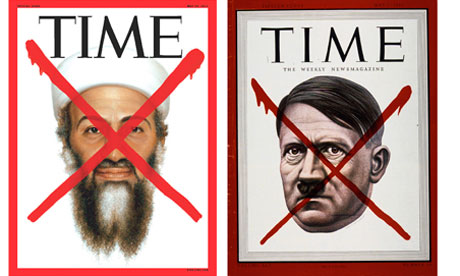
I don't know any younger media people, aka digital people, who would think about the division between content and business in the way it was once thought of at Time, Inc, where the premise of a Chinese wall between editorial (church) and advertising (state) became enshrined for several generations.
Time, Inc, in an effort to catch up with a world that in business and cultural norms has passed it by, announced last week that editors would now report to the business side. It also said it was bringing back Norman Pearlstine, a former Time, Inc editor-in-chief to serve in a new hybrid role as the interfacer or facilitator between content and business, called Chief Content Officer, and to dispatch Martha Nelson, the current editor-in-chief.
There are many nuances to this end of the church-and-state distinction, beginning with the fact that if anyone considers Martha Nelson, the former editor of People, some kind of editorial purists, or any sort of person not concerned with the most craven measures of success, they are smoking something. It is not that Time, Inc hasn't bent over backwards to do anything to make a few more dollars for the past 10 years or more, but that it has done it so incompetently.
That is why it is shortly to be jettisoned from the company, Time Warner, for which it supplied name, influence, status, and, for many years, most of the profits. Time, Inc, in fact, once represented the ultimate ability to transform content into money. No publisher in history has ever been so nimble and shameless and talented and shrewd in monetizing the words and pictures it produced. And perhaps that had a lot to do with Time's fine balance between sellers and creators.
But over the last decade or so, in the shadow of the structural downturn in publishing, Time, Inc has largely become a management free-for-all having absolutely nothing to do with the proper balance between church and state. It's been more a Lord of the Flies type power struggle.
Two years ago, an outsider CEO was brought into the company and expelled by the barons of the place a few months later; after a long interregnum, a weakling replacement was installed, only to be ousted in little more than a year.Perhaps the most elemental consideration when you are setting up a company -and Time, Inc. shortly to restart as an independent, publicly traded entity, is now going through that birth process - has to do with who's in charge. It is true that the new CEO, Joe Ripp, as a former CFO, at Time, Inc, and other companies is hardly going to be an editorial visionary, or have any really concerns about the special nature of content creation, but, on the other hand, he knows where the bodies are buried. Last week's moves, which included hiring the adept and sensible, Lon Jacobs, formerly of News Corp, as the general counsel, are all about taking control of a largely dysfunctional and incredibly nasty place.
The 71-year-old Pearlstine and 58-year-old Jacobs were hired to be the adults. Theses are sagacious men. On the other hand, if the world is divided, it is not so much anymore between church and state, but between the old, with prosaic notions about content, and the young, who can talk a marketing, traffic, branded content game.
Joe Ripp, as old as Methuselah too, might well have wanted to hire a genuine young person as Content Chief, save for the fact that such an innocent would have been quickly sliced and diced by the gang bangers at Time, Inc. Hence, the once and future Pearlstine to help mediate the murderous fiefdoms.
Now, to further refine the problem, it is not just that the editorial side is reporting to business, but that the business side largely consists of failed salesman. Certainly, if you are a salesman who is still selling magazine pages (however you have tried to rebrand yourself as a cross platform man), you've lost your career way. On the other hand, if you are a magazine editor at this point in time, you also have some serious career problems. Suffice to say, Time, Inc is no longer the first choice of Rhodes Scholars and the best and the brightest that it once was. If the business side can't sell ads, the editorial side has not been able to create content that much matters to anybody either - not for quite some time.
It's a failed state and God is dead.
What's more, the print industry shrinks at annual double digit levels, Time Inc's cost basis makes it largely noncompetitive in the new content world, and, based on its countless efforts, the company's ability to perform in a technology-driven market is nil.
Time's advantage, likely its only advantage, is that in a post-apocalyptic world nobody expects the company to succeed, hence it can't disappoint anybody either. As much as a company with something like 160 magazines can be, it's a blank page. The questions it has to answer are far more basic and existential then who should be responsible for content's bona fides.
For instance, what is the business basis for print? In fact, is there any reason print should exist? What, if anything, is left of the historic partnership between Madison Avenue and a glossy page in a status-conscious title? If not enough, is there something that print can transform itself into, something that print people might be capable of transforming their craft into?
For some of us, these are actually exciting questions, and high time they are answered.
0 comments Blogger 0 Facebook
Post a Comment